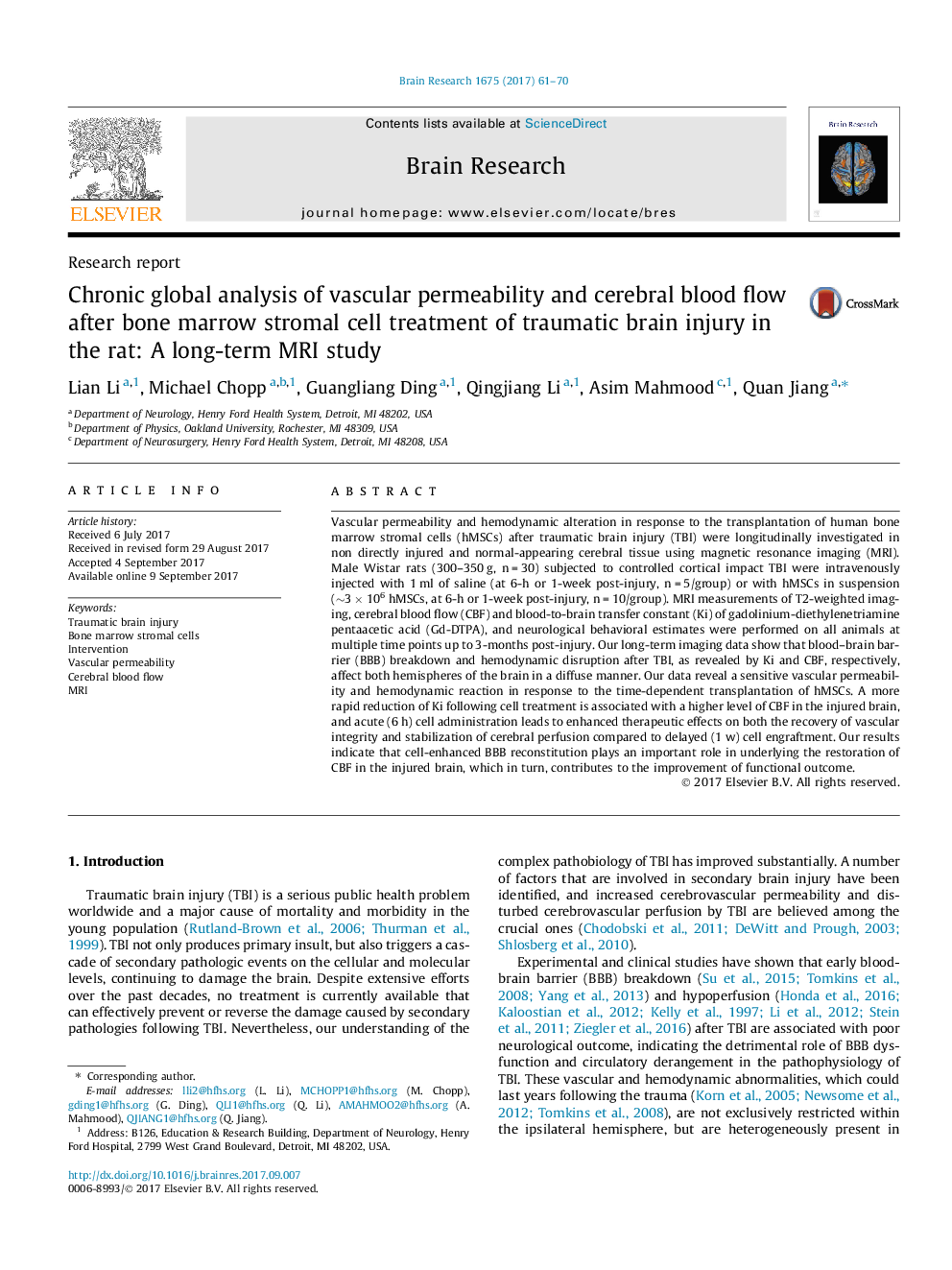| کد مقاله | کد نشریه | سال انتشار | مقاله انگلیسی | نسخه تمام متن |
|---|---|---|---|---|
| 5736471 | 1613770 | 2017 | 10 صفحه PDF | دانلود رایگان |
عنوان انگلیسی مقاله ISI
Chronic global analysis of vascular permeability and cerebral blood flow after bone marrow stromal cell treatment of traumatic brain injury in the rat: A long-term MRI study
دانلود مقاله + سفارش ترجمه
دانلود مقاله ISI انگلیسی
رایگان برای ایرانیان
کلمات کلیدی
موضوعات مرتبط
علوم زیستی و بیوفناوری
علم عصب شناسی
علوم اعصاب (عمومی)
پیش نمایش صفحه اول مقاله

چکیده انگلیسی
Vascular permeability and hemodynamic alteration in response to the transplantation of human bone marrow stromal cells (hMSCs) after traumatic brain injury (TBI) were longitudinally investigated in non directly injured and normal-appearing cerebral tissue using magnetic resonance imaging (MRI). Male Wistar rats (300-350 g, n = 30) subjected to controlled cortical impact TBI were intravenously injected with 1 ml of saline (at 6-h or 1-week post-injury, n = 5/group) or with hMSCs in suspension (â¼3 Ã 106 hMSCs, at 6-h or 1-week post-injury, n = 10/group). MRI measurements of T2-weighted imaging, cerebral blood flow (CBF) and blood-to-brain transfer constant (Ki) of gadolinium-diethylenetriamine pentaacetic acid (Gd-DTPA), and neurological behavioral estimates were performed on all animals at multiple time points up to 3-months post-injury. Our long-term imaging data show that blood-brain barrier (BBB) breakdown and hemodynamic disruption after TBI, as revealed by Ki and CBF, respectively, affect both hemispheres of the brain in a diffuse manner. Our data reveal a sensitive vascular permeability and hemodynamic reaction in response to the time-dependent transplantation of hMSCs. A more rapid reduction of Ki following cell treatment is associated with a higher level of CBF in the injured brain, and acute (6 h) cell administration leads to enhanced therapeutic effects on both the recovery of vascular integrity and stabilization of cerebral perfusion compared to delayed (1 w) cell engraftment. Our results indicate that cell-enhanced BBB reconstitution plays an important role in underlying the restoration of CBF in the injured brain, which in turn, contributes to the improvement of functional outcome.
ناشر
Database: Elsevier - ScienceDirect (ساینس دایرکت)
Journal: Brain Research - Volume 1675, 15 November 2017, Pages 61-70
Journal: Brain Research - Volume 1675, 15 November 2017, Pages 61-70
نویسندگان
Lian Li, Michael Chopp, Guangliang Ding, Qingjiang Li, Asim Mahmood, Quan Jiang,